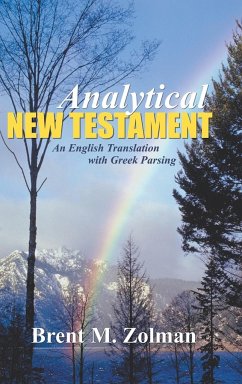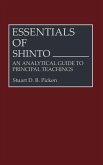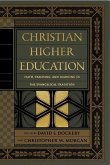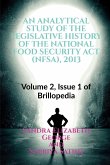This book is a translation of the Analytical New Testament with the following features: 1) Each potential parsing of each verb, participle, and infinitive presented in an interlinear format 2) English tenses used that match the Greek tenses 3) Greek nouns that are not made into English verbs (and vice versa) 4) Brackets indicating the words added into the translation 5) Two parsing keys and a page of symbols, abbreviations, and words As a graduate of a non-denominational Bible college and an inter-denominational seminary, the author did not play favorites with any theological school of thought. He strove to find a balance between Greek accuracy and English readability. The following Greek texts were used: the United Bible Societies' Greek New Testament, 4th Edition and the Nestle-Aland Novum Testamentum, 26th edition. The author is able to overcome the poor quality of the Greek texts used by sixteenth- and seventeenth-century English translators. Yet, it is very difficult for Bible teachers and Pastors to overcome the traditional words used in these early translations that are so very misleading to English Bible readers. How were "experts" in Latin able to translate their Greek text (and Hebrew) and still be given credit today for being "conservatives?" Many Greek students think that the Greek words have only one parsing (example: mood, tense, voice, etc.). Unfortunately, some preachers speak dogmatically about a Greek word while leaving out the other potential parsing that that particular verb may have. Please honor God's inerrant, infallible, and God-breathed Word by doing a professional job of research and study. Consider the eternal consequences for all speaking and all listening!
Hinweis: Dieser Artikel kann nur an eine deutsche Lieferadresse ausgeliefert werden.
Hinweis: Dieser Artikel kann nur an eine deutsche Lieferadresse ausgeliefert werden.








